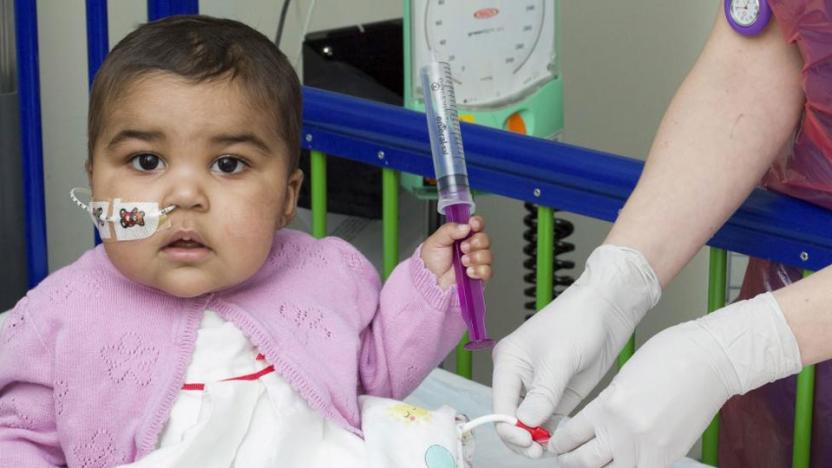geneediting
Latest

Gene-modified autistic monkeys could lead to a cure for humans
There's little doubt that gene editing could be one of the greatest advances in medical science, since it might let you "turn off" conditions. However, the way you test that editing is another challenge entirely -- and some scientists in China are pushing some boundaries to make it work. They've used genetic engineering to breed over a dozen macaque monkeys with a flawed gene that triggers a rare form of autism in humans. The hope is that researchers can not only study how brains function with this condition, but experiment with treatments that could be useful on people. Ideally, the researchers will use a gene editing system like CRISPR to eliminate the condition outright.

President Obama wants US to 'reignite its spirit of innovation'
President Obama gave his final State of the Union address on Tuesday. In it, he discussed how far the country has come over the last year and where he sees it going in the future. But beyond the expected talk of a rebuilt, stronger economy, soaring high school graduation rates and new civil liberties, he laid out a bold plan to, as he puts it, make "technology work for us, and not against us."

Scientific community approves human gene editing studies
Human gene editing research is extremely controversial due to numerous ethical, moral and legal reasons that some groups would prefer to see it banned outright. Those who do want it to move forward can breathe easily for now, though, as the leaders of a summit held by the US National Academies of Sciences and Medicine, the Chinese Academy of Sciences and the United Kingdom's Royal Society have decided to support human gene editing research. The scientists are even OK with modifying eggs, sperm and embryos (collectively called germline cells), so long as the edited cells stay in the lab and aren't used to induce pregnancies. In other words, creating designer babies is a no-no. We'll bet that means the NIH will uphold the ban on funding studies that deal with embryo engineering.

Scientists show that gene editing can 'turn off' human diseases
Gene editing has already been used to fight diseases, but there's now hope that it might eliminate the diseases altogether. Researchers have shown that it's possible to eliminate facial muscular dystrophy using a newer editing technique, CRISPR (Clusters of Regularly Interspaced Short Palindromic Repeats) to replace the offending gene and 'turn off' the condition. The approach sends a mix of protein and RNA to bind to a gene and give it an overhaul.

Doctors treat drug-resistant leukemia with 'gene editing'
Doctors at Britain's Great Ormond Street Hospital believe that they're on the cusp of a breakthrough in how to treat genetic diseases. Researchers have successfully -- so far -- implemented a method of editing genes that can seek out and eliminate conditions without the use of drugs. It's very early days as yet, but the procedure has already been used to save the life of a one-year-old with a terminal case of drug-resistant leukemia.



